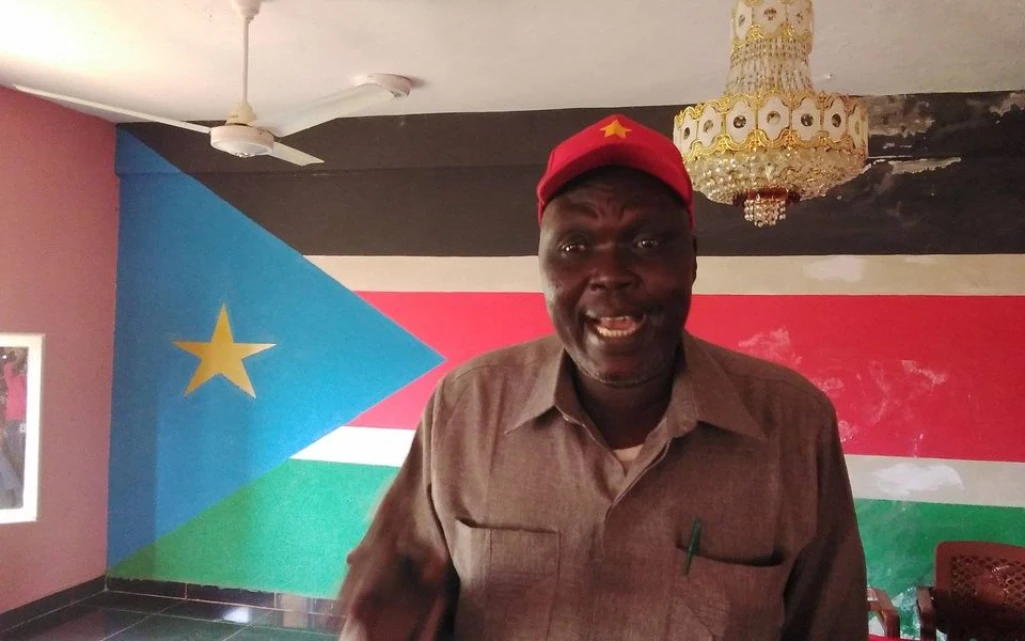
The SPLM party in its ruled state; Northern Bhar El Gahzal, has revealed why it prevents SPLM-IO party from holding political rallies. It views SPLM-IO and SSOA parties illegal and unregistered in the national political parties’ council -An act which the oppositions said contradicts the 2018 peace deal.
With pressure towards the anticipated general elections come 2024, the ruling party -Sudan People Liberation Movement (SPLM) has in several cases been reported by the opposition parties of restricting the political space country wide especially in Northern Bhar El Gahzal state.
Late last year, there were reports of torture, restriction, harassment and intimidation including detention of the SPLM-IO members which were later released on bail.
Much as the state governor Tong Aken had earlier denied harassing the political parties in the state, state secretary of the opposition party -SPLM-IO said the SPLM-IG is using the state security forces to oppress the other political parties in the state.
Garang Wol Amoi said the political monopoly makes him doubt there will be free, fair and credible elections.
“I don’t think there is election because revitalize peace agreement is not being implemented fully, […] the forces who are working right now are loyal to the ruling party, they prevent our activities,” said Garang, state SPLM-IO secretary.
Garang said the harassment is not 0nly against the political parties but also those who change their allegiance from the ruling party to other parties are subjected to torturing.
“…also two members who resigned from their party were arrested and detained for couple of days until we had to fight for their release which is against the agreement signed by the parties” he aserted.
The war broke out in 2013 over power struggle between President Salva Kiir and his deputy Dr. Riek Machar who was his fellow comrade in the SPLM splitting SPLM party into two. In 2015, the warring parties singed the peace agreement but failed in 2016 when the country went back to war.
In 2018, they signed the revitalized peace agreement which founded the current ‘Revitalized Transitional Government of National Unity (R-TGoNU)’. Article 1.3 of this agreement spelled out the parties that composed the current transitional government and they includes, SPLM-IG, SPLM-IO, Other Political parties, South Sudan opposition alliance, former detainees and other political parties outside the incumbent transitional government of national unity including alliances and umbrella who participated in the agreement.
The parties are to be peace agreement centered in their governance to ensure peace and credible transition into a democratic dispensation.
In contrary, the SPLM assistant secretary for political affairs in the state, Abraham Manyang Diing Geng, finally revealed the idea behind the restricting of the political space in the state -an idea which the state governor did not say openly.
“These two parties (SPLM-IO and SSOA) are partners are in the revitalize peace agreement but they did not register in the political parties’ council in South Sudan, they don’t have certificate to grant them opportunity to have political space in the state,” Manyang singled out the two parties terming them illegal and unregistered.
“…other partners have right to do any rally because their parties are officially registered,” he continued without mentioning Former Detainees.
According to the 2018 revitalized peace agreement article 1.20.1 and 1.20.2, the current agreement government is tasked to review the political parties Act, 2012, dissolve and reconstitute the political parties council to ensure ensure international best practices for the free and democratic registration of Political Parties in South Sudan.
This puts all the parties at the same level until the political parties’ council is reconstitute and start registering the parties to achieve the reforms provided for in the peace deal.
Political parties Act has been reviewed but the council has not yet been reconstituted to commence the registration of the political parties in South Sudan. -Without political parties’ council in place, no party is legitimate nor illegitimate than the other because the peace agreement overpowers the transitional constitution of South Sudan.
Article 8.2 of the peace deal partly states that “in the event that the provisions of the Transitional Constitution of the Republic of South Sudan, 2011 (as amended) conflicts with the terms of this Agreement, the terms of this Agreement shall prevail,”
“…accusation presented against us that we are restricting members, never happened. Only two members who left with assets of SLPM are the ones whom we asked to return the assets but they failed to do that and we raised that complain in legal way through their secretariat in the state because their members who came to us with assets, we took all the assets they came with, and we returned them to their office,” Manyang responded to the allegations that the SPLM subject their members who change allegiance to torture, arrest and intimidation.